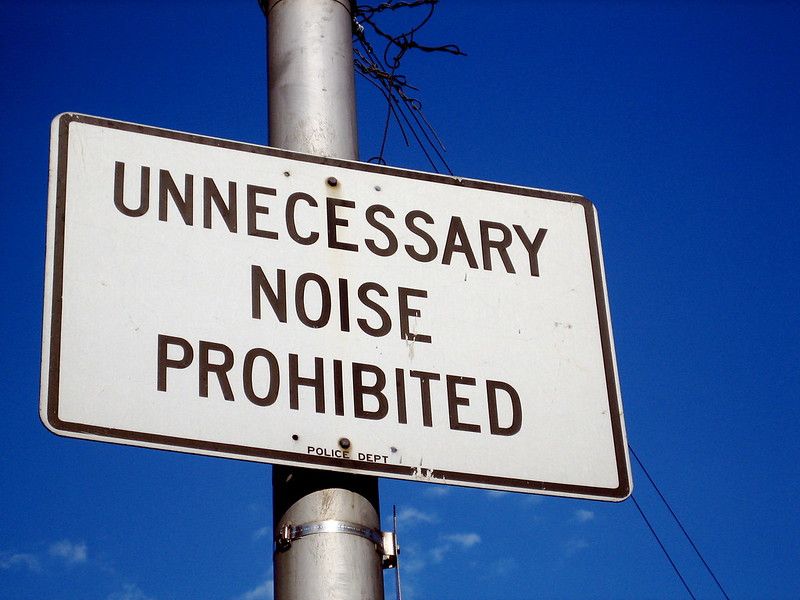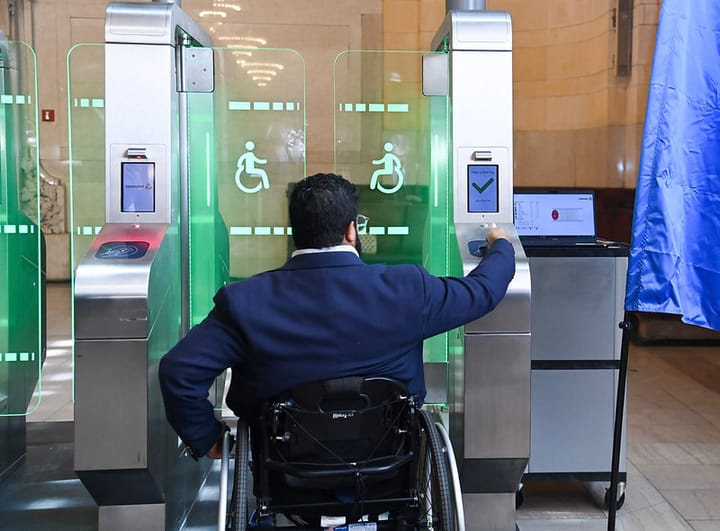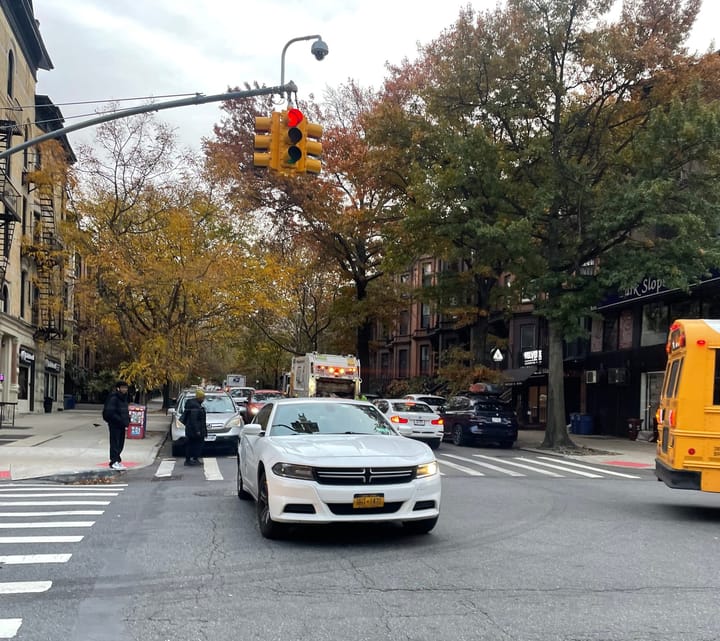You can make thousands of dollars as a snitch in New York City. Should you?
The city will pay you to snitch on lots of things, from illegal dumping to noise

In New York City, snitches get riches.
Citizens who take it on themselves to report violations on a variety of issues, from noise violations to illegal dumping, are collecting thousands of dollars in rewards. That means you can actually make some money keeping garbage off the streets, snitching out on polluters and fighting for clean air in your neighborhood.
Some New Yorkers have really run with that idea in recent years, racking up thousands of dollars in rewards and bounties, while sticking some violators with tens of thousands of dollars in fines. Not everyone is happy about that.
This week, representatives from the city’s hospitality industry testified before a City Council committee in support of amending the noise-complaint bounty law that they say empowers a small contingent of people to unfairly target small businesses. Two new City Council bills (read them here and here) are seeking to change that.
“These bounty hunters are not average citizens. They have turned profiting off the backs of small businesses into an entrepreneurial opportunity,” Andrew Rigie, executive director of the NYC Hospitality Alliance, said in a written copy of his testimony. “Worse, they are relying on an incorrect reading of the law to do it.”
Noise complaints have sometimes been the tool of wealthy new residents looking to make neighborhoods over in their own quieter image and push out longtime residents.
In June, NBC New York found out that the bulk of those noise violations were connected to a small group of people, and many go back to one man: Queens resident Dietmar Detering.
“There are so many violations out there and the lack of enforcement. I see the victims,” Detering told NBC at the time. “My desire for these businesses is not to give me any more work. Be quiet.”
Snitching of this kind can run the ethical gamut, from earnest citizen watchdogging to nosy nunya-business-ing to potentially very dangerous intrusions on your fellow New Yorkers' privacy. This is definitely not legal advice, but we reviewed all the ways the city encourages snitching, and will do our best to weigh in on whether you should go after that bounty or — in a city where minor inconveniences are a way of life and we'd rather look out for our neighbors than blow the whistle on them — you should just keep your trap shut.
Noise
Detering claims that reporting noise violations is his full-time job; another Manhattan lawyer told the New York Post this summer that he makes “four figures” snitching, without disclosing his total income.
But becoming a noise snitch yourself is not that easy. There are no city forms or portals for reporting and claiming snitching bounties — all queries direct you to 311.
Rigie told us that snitchers are not using 311, but rather an obscure 50-year-old law that lets them file complaints directly with the Department of Environmental Protection. The DEP has 30 days to decide to take the case themselves or dismiss it as frivolous, but if they do nothing, the citizen bounty hunter can issue tickets in their own name. The sheer number of citizen citations issued — 6,000 this year alone, according to Rigie — overwhelms the DEP review staff and the citizen tickets move forward. (The DEP did not respond to a request for comment).
One of the bills before City Council would cap the bounty citizens can receive at $5 or $10; currently snitchers can get up to 50 percent of the fines collected, which can go up to $5,000.
The noise code itself is not that easy to understand either (you can read a summary of it here). It contains lots of stipulations about specific decibel levels and confusing language about what kind of amplified music is allowed where and when. One of the violations Detering successfully levied, for instance, involved catching a restaurant playing music in an empty outdoor shed on the street during the daytime.
So if you really really want to become a noise bounty hunter, contact the DEP directly and see if they’ll accept your snitchery.
Should you snitch on noise?
It sure seems like this one isn’t really working out that well; even the DEP wants to change it.
“Unfortunately one of the patterns we have seen is the citizen enforcers seem to go where it is easiest to make the money,” DEP commissioner Rohit Aggarwala told NBC. “If they are playing gotcha, if they are looking to rack up multiple violations for example without letting the business owner know about the first one – that is not legitimate enforcement activity. What that is, actually is bounty hunting.”
The city actually has several mediation opportunities that are not bounty hunting, including MEND NYC, a free mediation service that aims to resolve quality of life disputes between restaurants, bars and neighbors. Mediations are conducted by neutral third parties in order to “find common ground and coexist as neighbors.” To request help for an ongoing issue, email MendNYC@oath.nyc.gov.
Idling trucks
In 2020, the city unveiled one of its weirdest yet also most astute marketing campaigns: Then-Mayor Bill de Blasio brought in rock icon Billy Idol to launch a Billy Never Idles campaign against pollution from idling heavy vehicles. The city’s war on unnecessary tailpipe emissions goes back ever further: in 2019, the city launched the Citizens Air Complaint Program, which lets regular New Yorkers snitch on illegally idling trucks or buses (but not, sadly, passenger cars) and collect 25% of the fine as a reward. The fines start at $250 for a first-time offender to $15,000 for repeat offenders (a potential $3,750 bounty).
De Blasio said at the time that ending idling would be the climate equivalent of taking 18,000 cars off the road. Idling for more than a minute next to a school, or three minutes anywhere else, is illegal.
The DEP site has a portal for filing such complaints, along with a list of the requirements necessary for successful complaints (capturing license plates and including timestamps, for instance).
Should you snitch on idling?
Get their asses. We’re choking on enough exhaust just from cars actually in motion in this city, so we shouldn’t have to suffer it when the vehicles aren’t even going anywhere. Truckers leave their vehicles idling to maintain the climate in the cabin, keep the engine warm or because of old habits, according to several trucker websites; practices those sites say are often outdated.
But be careful: snitches say drivers get pretty angry if they realize what you’re doing. And anyone who would willingly burn gasoline in this economy is already not thinking straight.
“I had knives pulled on me three times,” one snitcher told CNBC last year.
On 8/30/2019 I spent the day riding my bike around NYC and recording videos of idling trucks. I recorded 16 videos. 2 were rejected. 14 summonses were issued. 1 was dismissed (BS). COVID-delayed hearings were in late 2020 and early 2021. I collected $1,187.50 for that 1 day.
— streeter🚲 (@_streeter) September 18, 2021
Heeding Billy Idol’s message can result in lots of mony mony too: one person told CBS News that he made $16,750 over three years for reporting idling vehicles; others reported making up to $64,000 without even trying that hard, one person said they made over $1,000 in a single day. Idling trucks, it turns out, are everywhere.
Illegal dumping
Illegal dumping is the scourge of many a highway median, unguarded park corner or outer-borough cul-de-sac. It often takes the form of bags of household waste or construction debris that someone won’t find a proper receptacle for, and decides to leave for someone else to deal with.
The Department of Sanitation has ramped up enforcement against it this year by rolling out cameras and surveillance at dumping hot spots. Part of that increased enforcement involves recruiting you, the dump-hating New Yorker, into the fight.
Illegal dumping is a crime - it's right there in the name. So why do it? Think you're going to get away with it? Well guess what - you're wrong. These signs mean cameras are nearby, you WILL be caught, and you WILL face major consequences for mistreating our neighborhoods. pic.twitter.com/7yKuFMqL5z
— NYC Sanitation (@NYCSanitation) June 9, 2022
Snitching on illegal dumping can earn you a reward of 50% of the fine, which can range from $4,000 to $18,000. You might have to show up in court as a witness though. Tipping the city off to illegal dumping so they can catch someone in the act can also earn you a 50% reward, and you can remain anonymous. Find out how to make a report here.
Should you snitch on illegal dumping?
Let’s see: bags of trash dropped on random streets or greenways, embodying an astronomical level of disregard for the social order and disrespect for our hard-working DSNY crews charged with cleaning it up? Oh yeah, snitch your brains out baby.
Graffiti
The NYPD offers a reward of up to $500 for reporting graffiti vandalism in progress through 911, or for information regarding graffiti vandalism in general that results in an arrest and conviction. The program was created under Mayor Michael Bloomberg, who committed his own vandalism of the mayor’s office while in power.

Should you snitch on graffiti?
Graffiti art has a long and storied tradition in this city, and who are you to say the many yawning concrete beige walls of the city are actually better than a big complex burner of a piece? Unless it’s your personal wall I guess, or you’re the one who has to clean it off. I don’t know.
Legal street art is often confused for illegal graffiti (as we wrote about in September), so you might not even be witnessing an actual crime. Or you might be introducing a young person into the justice system just for writing their tag. Do you really want to do that? There is, however, some definitively evil graffiti out there that should be stopped.
Illegal guns
Legally owning a gun in New York City requires a city issued permit or license. That’s part of the reason why more than half the guns recovered here come from out of state, a product of the so-called Iron Pipeline that brings weapons up the I-95 corridor. If you want to get involved in gumming up the pipeline, you can tip off the city about illegal firearms and trafficking through the Gun Stop Program, with the potential for a $1,000 reward.
Should you snitch on illegal guns?
You can remain anonymous and still collect the reward so yeah probably. You probably won’t want to go up to someone and say “hey, is that an illegal gun?” though; even law-abiding gun owners don’t like you asking about their guns.
Theft of recycling
Theft of recycling is indeed a crime! The moment trash and recycling hit the curb, they become city property. It’s illegal to “disturb, remove, or transport by motor vehicle any amount of recyclable material placed out at curbside, within the stoop line, or in front of the premises for collection.” Snitching on this can lead to a reward of up to half of the fine collected, and the fines can go up to $1,500.
Should you snitch on theft of recycling?
This snitching opportunity specifically excludes the on-foot bottle-and-can collectors of the world, the secret workers who actually get a lot of recycling out of the trash cans. “Do not use the Recycling Theft Tip Form to report individuals on foot scavenging small quantities of recyclable material,” the 311 site states.
Large-scale theft of recycling, however, is illegal because the city sells some of its recycled materials to offset trash collection costs, and because it wants to measure whether the city is meeting its recycling goals. It’s meant to target more sophisticated operations that collect mass amounts of recycling by car or truck, though a Times story from 2016 said that people using cars might just be regular bottle deposit collectors too.
“You make $40, you can go to the market, you can do your laundry, it could put gas in my car,” one person technically committing recycling theft told the paper. “Why should they take food off my table?”




Comments ()